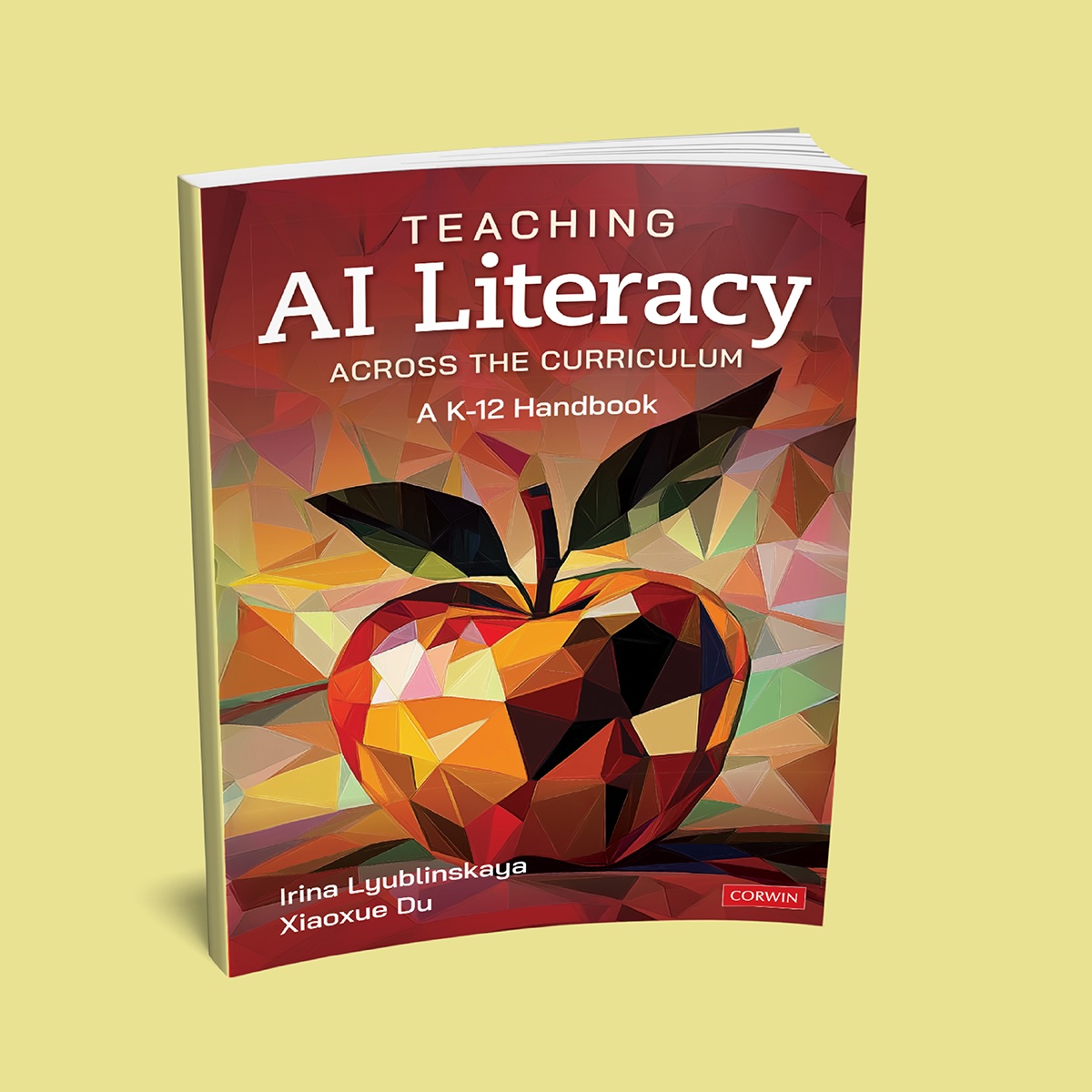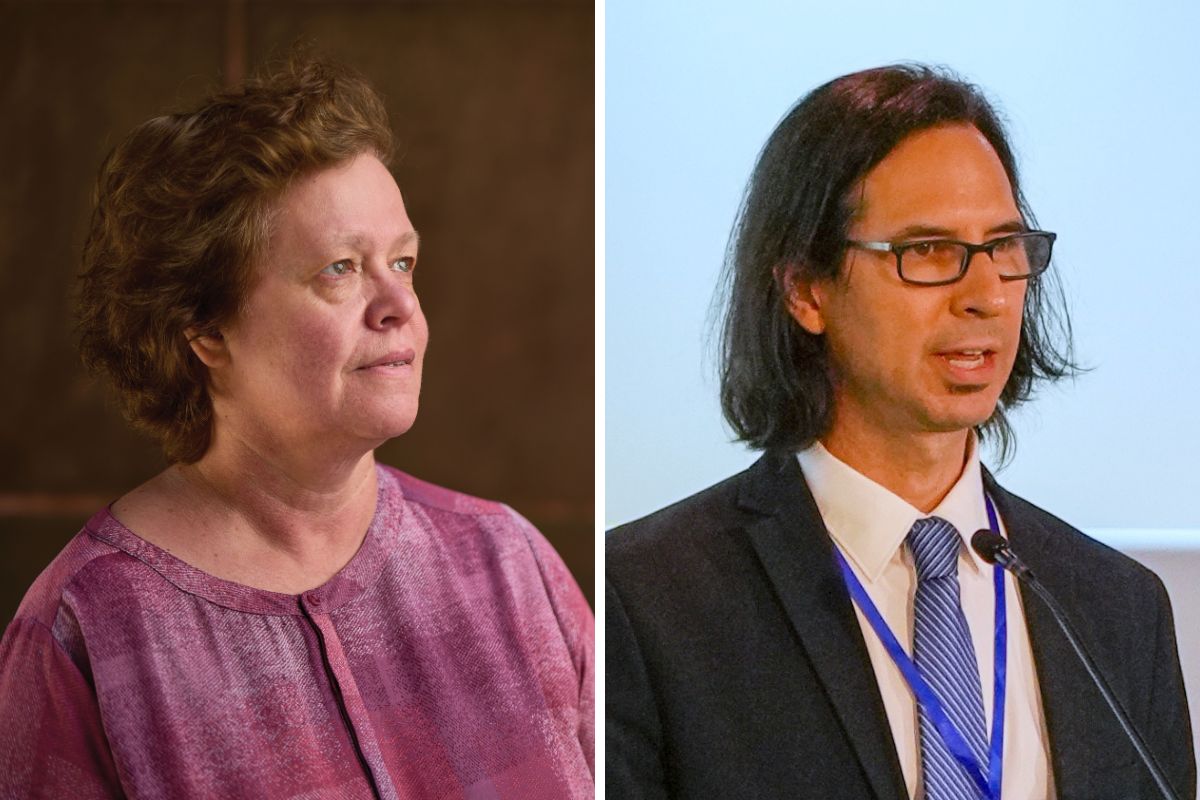On 120th Street, TC faculty across programs are leveraging artificial intelligence to enhance teacher preparation, student success and more. Among them are Irina Lyublinskaya, Professor of Mathematics & Education, and Erik Voss, Assistant Professor of Applied Linguistics & TESOL, who gave us a closer look at their scholarship.
Cultivating AI Literacy
Beyond focusing on knowledge-based learning, educators must help students develop the critical thinking skills and ethical frameworks necessary to become AI literate — i.e. leverage AI responsibly throughout their lives and careers. This perspective is the focus of Teaching AI Literacy Across the Curriculum, the forthcoming book from TC’s Irina Lyublinskaya, Professor of Mathematics & Education, and TC alum Xiaoxue Du (Ed.D. ’22), which offers educators 40 actionable lesson ideas, discussion topics and more across grade levels and subjects.
“AI literacy has the potential to spark curiosity, boost critical thinking, and foster a love of lifelong learning, but it all comes down to how we, as educators, choose to integrate it,” write Lyublinskaya and Du, who aim to help teachers leverage AI seamlessly in lessons alongside required curriculum.

Teaching AI Literacy Across the Curriculum by TC’s Irina Lyublinskaya and Xiaoxue Du (Ed.D. ’22). (Photo courtesy of Corwin Press)
Why It Matters: Lyublinskaya and Du’s new book responds to the need for professional development tools to support educators as the future of AI in education takes shape. They assert that we must have an AI-literate society in order to use AI responsibly, ethically, environmentally, and to improve and increase access to education.
“Teachers are central to the success of AI literacy education,” explain the co-authors. “We are the ones who introduce students to AI concepts, guide ethical discussions, and help students apply AI to real-world problems. However, teaching AI literacy requires a specific set of skills and knowledge that many of us as educators may not yet possess.”
Teachers are central to the success of AI literacy education... However, teaching AI literacy requires a specific set of skills and knowledge that many of us as educators may not yet possess.
What’s Next: Lyublinskaya and Du are conducting research that will assess the efficacy of their pedagogical framework in helping teachers develop AI literacy. Lyublinskaya will once again teach a non-credit course focused on AI literacy with TC Academy, the College’s professional development programming open to all, next winter, and is exploring additional online modules for her instruction on AI literacy. In the next several months, Lyublinskaya is scheduled to discuss her AI literacy scholarship at conferences around the world, including China, Japan and Spain.
Enhancing Global Communication
At a time when students can easily use apps like Grammarly to improve their essays or Duolingo to practice their foreign language skills, what boundaries and best practices do education leaders need to foster effective, enriching learning? At the intersection of AI and language, TC’s Erik Voss, Assistant Professor of Applied Linguistics & TESOL, is one of the scholars exploring such questions, and annually convenes academic and industry experts from across the globe at TC’s Artificial Intelligence Research in Applied Linguistics (AIRiAL) Conference. Objectives like fair testing, optimizing tech solutions and personalizing learning experiences define this particular quest in the journey of AI in education.

Participants at the Artificial Intelligence Research in Applied Linguistics (AIRiAL) Conference at Teachers College last fall. (Photo courtesy of AIRiAL)
Why It Matters: “We’re bridging the gap between academia and industry” to collaborate in resolving complex issues in AI-driven language learning, explains Voss, and “to support graduate students as the next generation of researchers and developers.” For the TC professor, experts must balance leveraging AI and innovation with meaningful learning.
What’s Next: Voss has teamed up with Hansun Zhang Waring, Professor of Applied Linguistics and TESOL, to develop a framework that will measure how naturally chatbots can converse with humans and, ultimately, help developers create educational experiences that can more effectively impart real-world language skills. Voss will also publish research that examines AI-driven writing assessments, which similarly need to advance to appreciate the complexities of writing style choices across purposes. “We need to trust the score of the machine in order to make decisions or take action based on those results,” explains Voss.
We’re bridging the gap between academia and industry.
